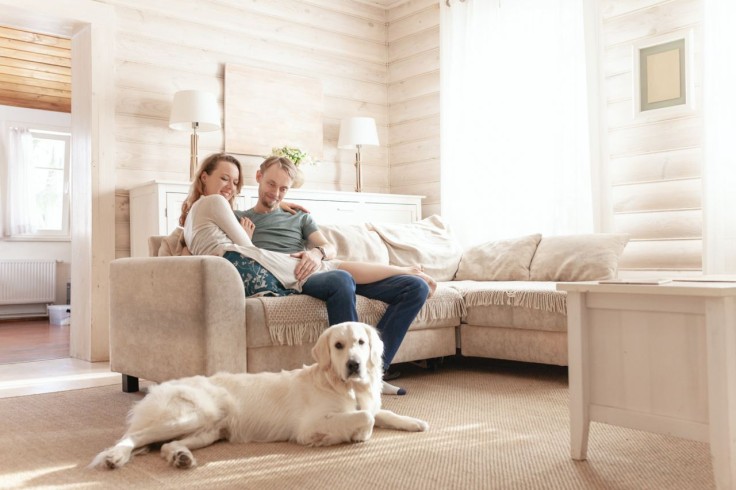
In some households, pets are family. If you've owned pets for years, whether a dog or cat or whatever, you'd know exactly what that means. They aren't just some animal you'd feed and provide the minimum amount of care to keep the animal alive. They're your furry kids.
It's because there's nothing like going home to the company of a beloved pet (or pets) that's always happy to see you and which well-being and happiness depend on you. Besides, pets not only provide companionship and unconditional love; they also give you health benefits like reducing your stress, improving your heart's health, and helping children with their emotional and social skills.
Maybe this is why owning pets is very popular. In the U. S., an estimated 68% of households have a pet. Pets implicitly trust their humans to care for them and not hurt them. Humans, in turn, get all that unconditional love in the form of excited barks, kisses, nuzzles, and that look in their eyes that says "You're my human! You'll take care of me, right? Right? Right?"
And we shall, my boy. Always.
Taking Care Of Their Well-Being
But, if you're feeling anxious because of being cooped up and wondering how to better your pet's well-being in times like these, worry no more. If you want to help give your furry friend the best care possible, you can take a look at Pumpkin pet insurance. Insurance plans can give you the peace of mind that comes from knowing you've got them covered when they're sick, when they're hurt, and when they're healthy and just need checkups. Here are a few tips to make sure that your pet is well taken care of from the comfort of your home.
Proper Nutrition
Giving your pets the correct amount and type of food will aid them in maintaining a healthy weight. Remember, obesity in a pet isn't cute. What's cute is a healthy and active pet, enjoying his life to the fullest, free from diseases related to obesity. Your pet's nutritional needs are usually met by giving him a balanced diet of quality food. You can find out more on sites like Petsumer about a pet's balanced diet.
But, to be sure, check with your veterinarian if your pet gets the nutrients he needs or if he needs dietary supplements. Don't forget, too, that he should have access to fresh, clean water. Don't overdo it with the treats. Veterinarians advise that treats shouldn't make up more than 10% of his daily caloric needs. With the current pandemic, there are vets who could check on your pet's nutrition online.
Exercise
Ideally, you should get your pet active physically through regular walks, hiking, or swimming. But, if you can't, you can play fetch in your backyard or a modified version of it in your living room. Besides getting your pet active physically, there should also be mental stimulation. You can get them toys to play with, or perhaps you can hide treats for them to find, build an obstacle course, and practice new tricks.
Grooming
Grooming means the works: regular nail trimming, regular brushing, and regular baths. Grooming your pet is also a great way to monitor any changes in your pet's skin or fur. You get to check for dandruff, dry skin, or bald patches.
This is also an ideal time to check for anything that could cause concern, like lumps and bumps. Bringing him to a professional groomer whom your pet trusts is an option. But, if that's not possible because of the current situation, and you know how and have the proper tools, you could do it yourself. Just ask the vet for proper grooming tips.
Care And Affection
Forming a strong bond with your pet is good not only for him, but for you, too. Belly rubs, pets, cuddles, nuzzles, and brushing his coat are excellent ways of showing your pet some love. It promotes your pet's positive socialization with humans and strengthens the bond between the two of you.
Socialization
Exposing your pet when still a puppy or a kitten to different social settings to socialize them lessens the odds of your pet developing fearful and aggressive behavior later on. A pet's formative years are from a few weeks to 16-18 weeks. So, make sure they're appropriately socialized during this period.
Your pet should get used to playing and interacting with other pets and humans, not only when they're young but also throughout their lives. You can schedule and arrange visits with family or friends with their pets (observing proper protocol, of course), visit the dog park, go for walks, or let your pet spend an afternoon at daycare, if the vet allows it.
Keep Your Pet Safe
His collar with ID tag should always be in place whenever you go out. Ensure, too, that your home is free of health hazards. All toxic substances should be out of reach of your pet. Take care your trash isn't accessible to any of your pets, as there might be hazardous food scraps in your trash bin. If you have a garden, be aware that fertilizers, bait traps for slugs or rodents, and insecticides can harm your pet. There are also garden plants that are toxic to cats.
Conclusion
Pets aren't just animals. For many, they are family members that deserve to be taken care of by the family. They help reduce stress, anxiety, depression, and loneliness. It's also great for kids to grow up with pets. Having pets also teaches you to be responsible and to take a more active lifestyle.
Contrary to what most people think, the hardest part of having pets isn't the part when you clean after them and take care of them. It's saying goodbye. But, while they're with you, they'd be your most loyal friend who'd love you no matter what. Being cooped up with your pet is another chance for you to bond.